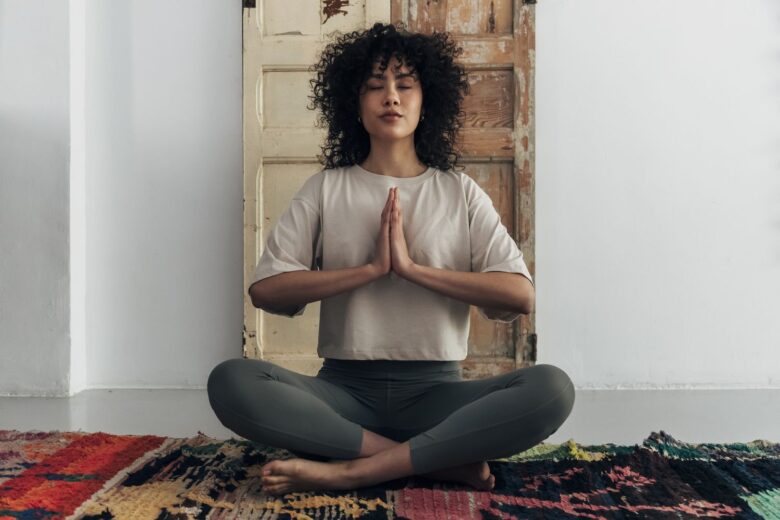Prayer and meditation are ancient spiritual practices that can profoundly transform your life. By creating a deeper relationship with the universe and finding inner peace, they help establish an essential link to creating change within.
Begin each morning with prayer and meditation practice that you enjoy, beginning with shorter sessions before gradually increasing their duration as your comfort increases. Make sure that enough restful sleep has been obtained prior to commencing this practice in a sacred space of your choosing.
1. Peace of Mind
Prayer and meditation help calm the limbic system of your brain, which becomes hyperactive during times of stress or fear, to enable more rational decisions to be made while diminishing anxiety associated with situations at hand.
Studies have demonstrated that people who pray regularly often experience reduced levels of stress and anxiety, and an increase in positive emotions such as gratitude and compassion. Praying can also help strengthen resilience to pain and overcome any adversity faced during life’s tough times.
Prayer and meditation both offer you a sense of connection to something greater than yourself, creating feelings of hopefulness and belief in miracles while increasing tolerance to pain, according to studies.
Meditation offers similar health benefits as prayer, such as relieving stress and anxiety, but differs in that it doesn’t involve speaking aloud or making mention of God. Instead, this practice involves focusing on one’s breathing while sitting silently for an extended period of time – often combined with reading Scripture and reflecting upon it.
2. Increased Self-awareness
Prayer and meditation provide individuals with an avenue for self-reflection and introspection, helping them gain more insight into themselves and their inner world. Such practices often involve dialogue with a higher power providing comfort, connection and guidance.
Spiritual meditation involves focusing on your breath or repeating a mantra to eliminate distractions and reach a deeper state of awareness. Additionally, this increased mindfulness allows you to be more in tune with your emotions and feelings – helping reduce stress and anxiety levels.
Scientists are beginning to understand the therapeutic effects of meditation and prayer through a new field known as neurotheology. Researchers are scanning brains of those who say they pray, and finding their brains look different than expected.
Prayer and meditation are deeply personal practices; therefore it’s crucial that you find one that resonates with you. Explore resources and connect with religious leaders or meditation instructors for guidance and support as you embark on this transformative journey – trust your intuition while embarking upon it – your soul will thank you!
3. Better Relationships
Prayer and meditation both offer ways of communication with Spirit, but both practices can have profoundly positive results on relationships. One study discovered that people who regularly pray had thicker grey matter in both their prefrontal cortex (the part responsible for focus and willpower) and anterior cingulate cortex (an area related to compassion and empathy).
Spending time in prayer or meditation allows you to deepen your relationship with your spirituality and your inner guidance system, while practicing self-compassion to manage stressors in life more effectively and build stronger relationships.
Meditation can be an excellent way to remain calm in a situation with someone close to you who is upset, as it reminds us that everyone’s journey is unique and that all situations will eventually resolve themselves. Meditation also can help develop more patience and forgiveness towards others which is key for maintaining healthy relationships as it allows us to see things from different perspectives.
4. Increased Energy
Prayer is an ancient spiritual practice that allows individuals to connect with a higher power or God, providing relief for life issues while increasing peace of mind, self-awareness, and developing key character traits essential for success in life.
Religion or spiritual traditions dictate whether prayer should be an organized activity where specific sacred words are spoken aloud, or it can simply be an informal discussion with God. Different faiths often offer specific prayers aimed at healing sick persons or seeking forgiveness from Him.
Meditation is another practice that can help increase energy, although it doesn’t usually involve conversing with God or another higher power. Instead, people can focus their thoughts on breathing or something meaningful like words, phrases or scripture that they find inspiring. Research has proven that meditation can increase sleep quality and decrease stress levels as well as increasing brain density – as well as strengthening relationships, decreasing anxiety levels and supporting overall emotional well-being.
5. Better Sleep
Sleep can help your body recharge after an exhausting day and prepare itself for tomorrow, but if you suffer from insomnia, pain, or stress-related issues such as sleep apnea a poor night’s rest can leave you exhausted and stressed out and hinder your ability to function at optimal performance.
Bedtime meditation practices can help you relax more quickly and more easily fall asleep more quickly, as well as combat common causes of sleep disturbance, such as rumination and stress. Studies have also demonstrated how meditation reduces activity in the amygdala – the part of your brain responsible for invoking fight or flight responses under stress conditions.
There are various forms of sleep meditation; find one that works for you and make the time every night to practice it. Some examples may include visualizing a peaceful scene (e.g. a calm, blue light surrounding you) or progressive muscle relaxation, which involves gradually tensing and relaxing each muscle one at a time from feet up. You could also try guided mediation before bed, which provides step-by-step instructions. Finally, set an alarm so your mind knows it’s time for sleep when the clock hits certain numbers on time each night!



